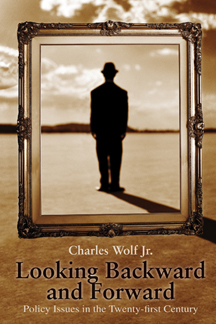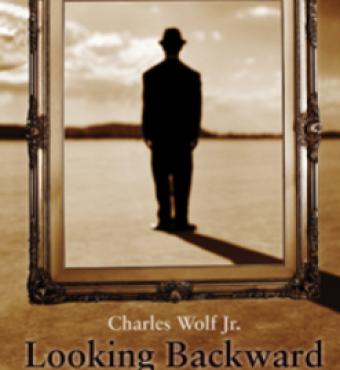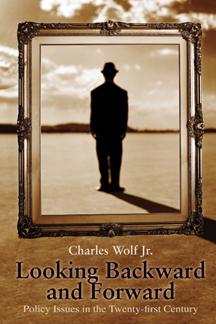
Charles Wolf Jr.—a renowned expert in international economic policy, economic development, international risk assessment, and the relationship between economic issues and foreign and defense policy—has written more than 250 articles on economics, defense, and international affairs. This collection features twenty-five essays written between 2002 and 2007, covering a wide range of worldwide economic, political, security, and diplomatic issues. These essays—many of which originally appeared in such renowned publications as the Wall Street Journal, the Los Angeles Times, and the International Herald Tribune, among others—reflect the pattern of policy issues to expect in the twenty-first century: a variety and complexity of themes that spill over the standard boundaries of political, economic, and military affairs.
Wolf offers a number of thought-provoking, often controversial themes throughout the collection. He suggests, for example, that rapid and full convertibility of China's currency might lead to its depreciation rather than appreciation and that China's remarkable economic performance is likely both to be sustained, and but to confront enormous and possibly disruptive impediments in its efforts to do so. He makes the case that "unilateralism" in U.S. national security policy may sometimes be preferable to "multilateralism." And he offers his insights on the "comfortable stagnation" of the Japanese economy in 1990s and the early 21st century, Kim Jong-II's financial bind, and Russia's progress and regress. Turning his attention to the Middle East, he asserts that the erroneous expectation that Iraq possessed nuclear weapons does not imply that the prior intelligence leading to this expectation was flawed—and that U.S. coalition "partners" may have interests and behaviors more congruent with those of the United States than do putative U.S. "allies." In addition, Wolf speculates on "what if" Iraq had not been invaded. And he suggests a way Sunni capitalism can trump Sunni insurgency.
The author offers a brief "postaudit" at the end of each essay, indicating whether, in his judgment, the argument set forth is still valid and relevant compared with when it was first written. He invites readers to make their own assessments, arriving at a lower or higher grade than he himself does for each essay in the collection.
Copyright 2008.















